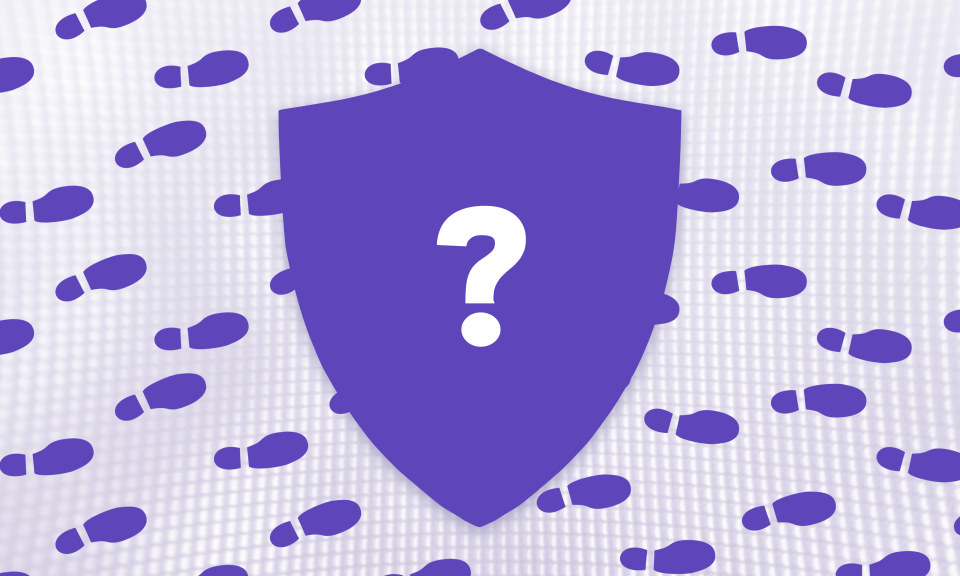
Can you be tracked using a VPN?
Apr 29, 2020The sudden shift to remote work driven by the global coronavirus pandemic has pushed online privacy to the forefront of public debate. People are increasingly aware of the privacy risks of online life. The video conferencing service Zoom is a prime example; the app saw downloads soar, only to become the subject of withering criticism for failures to protect people's privacy. But the problem is deeper and has been going on longer than many people may realize. The core of the problem is that online servers collect enormous amounts of data on users, even creating "browser fingerprints" that can identify an individual by their web history, which is as unique as a physical thumbprint.
In response, growing numbers of people have begun to seek new ways to protect their privacy while using the Internet. In response, some are seeking to protect themselves online with virtual private networks, or VPNs -- privacy solutions that route traffic through their own servers, making it harder for third parties to see what users do online. VPNs have long been favored by technologists and frequent business travelers, and they're poised to grow in popularity as the world shifts to remote work.
Using a VPN is a good idea: there's no doubt that these services offer improved privacy compared to browsing over a standard wi-fi connection. But how much? Can users still be tracked, even when using a privacy solution?
The short answer is yes: even with a VPN, you can be tracked. Being "logged" -- the term for tracking of VPN users -- is not the same thing as being monitored by ordinary ISPs, apps or websites. Most web browsers default to logging. When you use a VPN this is not the case; while user data is visible to the privacy provider, it is not sprinkled across the entire Internet the way it is when someone browses unprotected. Nevertheless, the fact remains that the person's online activity is still visible somewhere.
While most leading VPNs have stated commitments not to log, the fact is that they can if they want to. It's likely that many VPN services do, in fact, keep logs of their users' activities. Even those who try to honor their commitments to user privacy can be compelled in certain situations -- e.g., by legal authorities -- to turn over their records. This is where Orchid's novel approach to logging comes into play.
Orchid's novel solution to logging
Privacy is the reason Orchid was built. Our mission is to restore the Internet as a place people can explore freely. Orchid does this by aggregating the capabilities of bandwidth providers within an innovative two-sided marketplace built on the Ethereum blockchain. Orchid offers a number of innovations designed to improve privacy, including probabilistic nanopayments and multi-hop configurability. Orchid lets people access the services of top VPNs including LiquidVPN, PIA, Tenta, Boleh, and VPNSecure, combining these services with Orchid's unique technology to maximize anonymity while maintaining a robust marketplace that always has ample supply.

So how does Orchid approach the issue of logging?
The network is designed in a decentralized way that stops anyone -- including Orchid itself -- from easily targeting an individual in order to grab their information. This means we have no direct metrics around who is using the product, which most technology platforms would see as a major disadvantage. But our commitment to user privacy requires this. And it means users don't have to put their trust in Orchid -- we can't monitor you even if we want to.
But what about the VPNs that provide bandwidth on Orchid? Here too we take a unique approach. Rather than try to stop logging, or simply promise not to log, Orchid gives its users the power to make logging almost irrelevant. With multiple hops, encrypted user data can move between multiple VPN servers before it reaches its destination. In this scenario, providers can log all they want -- the only records they have will be of meaningless segments of uninterpretable encrypted data. Users' web traffic is, effectively, hidden in plain sight.
As long as logging is legal, people are likely to do it -- the incentives to collect users' data are too strong. So Orchid takes its different approach to the problem. Multiple hops and nanopayments make it possible, for the first time, to configure a privacy solution in such a way that it doesn't matter if a user is being logged, because the data can be effectively obfuscated. This is one of the ways Orchid is helping restore the Internet as a place where people can stay curious and explore freely.
Orchid is available for download here.

If you enjoyed this blog, subscribe here for privacy news, commentary, and product updates from Orchid.



